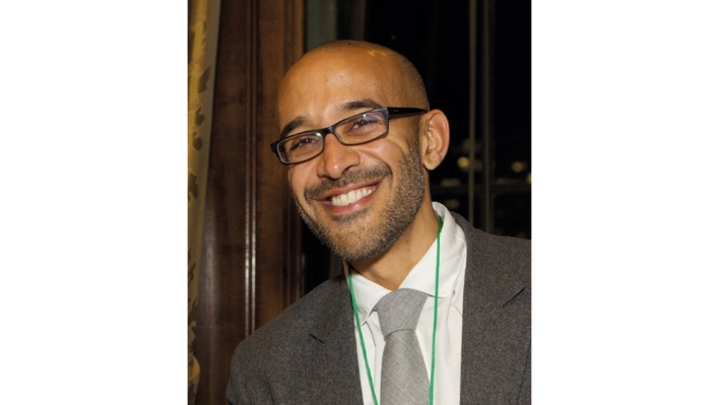Joe Godwin gets a job in Birmingham and asks, ‘Is this a renaissance I see before me?’
As the quadricentenary of Shakespeare’s death approaches, my thoughts turn to a less well-known Midlands anniversary. To work for the BBC was my midsummer night’s dream and, 30 years ago, I wrote to Kay Alexander at Midlands Today, asking for her advice about a career in television.
She kindly arranged for me to speak to someone in personnel and, eventually, I found myself working as a Regional Station Assistant – not in Birmingham, but in Southampton.
Born in Warwickshire and weaned on BBC Midlands, I never did work at Pebble Mill. I arrived in Birmingham to run the BBC Academy and BBC Birmingham too late – it had gone.
Pebble Mill at one with the earth. But its brutalist form casts a deep shadow over the Midlands media landscape.
In the 20th century, Birmingham wasn’t just any old BBC regional centre. In 1922, it was the first and, for decades, the most important. In 2004, the BBC moved to a new city-centre site in The Mailbox, which was modern, efficient and cheaper to run.
But in 2012, as part of a rationalisation of production bases, much of Birmingham’s factual TV and radio moved again, this time to Bristol. The Mailbox was suddenly half empty and not so efficient – something that Tony Hall encountered in his second week as Director-General and that he was determined to do something about.
The West Midlands is at an economic and cultural watershed: the Midlands Engine is revving up. HS2 will bring millions of people and billions of pounds straight into the heart of Birmingham. The likes of HSBC are relocating their UK headquarters to the city, and a new John Lewis bestrides the wonderfully rejuvenated New Street Station.
Confidence is high and the focus is increasingly on Birmingham’s own huge growth potential and second-city cultural status. We are looking less over our shoulders at our friends in the North and their Powerhouse.
And BBC Birmingham is in the throes of its own mini renaissance. The BBC Academy has joined Midlands Today, Radio WM, The Archers and Home Front, Father Brown and Doctors, and the Asian Network in the city.
Not long ago, The Mailbox felt like the Media Marie Celeste – now it’s full again.
Birmingham’s next media chapter is going to be about digital; our Digital Innovation Unit is beavering away on stuff for BBC Three. A new team is leading the BBC’s six-month online Bard-fest, Shakespeare Lives.
Co-curated by the BBC and the British Council, it will open the rich archives of Shakespeare to the whole world, as well as streaming performances and features for the anniversary celebrations.
And it’s not just us. New indies, such as Colette Foster’s Full Fat, are appearing, and Lenny Henry made the wonderful Danny and the Human Zoo here. He is now making the case for the West Midlands to be the place to make a real difference in terms of diversity in TV.
There’s a feeling here that Birmingham fell off the BBC’s map of Britain. But now we’re rebuilding our presence, to become the BBC that this great city and region deserve.
I’m very proud to be the BBC’s “Director of Better” for Birmingham. We’ve got the B-word back on everyone’s lips across the BBC. It brought the BBC Music Awards to the city, with more to come in 2016.
Next, our aim is to produce more BBC TV and radio programmes here in the years ahead, and I’m quietly confident that this will happen.
Joe Godwin is Director of BBC Birmingham and BBC Academy.







